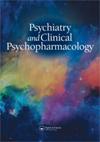Examination of attention and memory processes of workers exposed to solvent for a long time
IF 0.5
4区 医学
Q4 PHARMACOLOGY & PHARMACY
引用次数: 0
Abstract
ABSTRACT PURPOSE: This study was planned to assess the attention and memory-based performances of workers who used solvent as part of their job and therefore who had been exposed to this substance for a long time. METHOD: The participants of the study are 31 workers who were diagnosed with solvent exposure in the occupational diseases polyclinic of Istanbul Occupational Diseases Hospital and who were treated as inpatient treatment. These 31 participants were individuals who worked for at least 1 year in solvent use, and who did not have any physical, neurological, or psychiatric diseases prior to the study. Beside the aforementioned study group, 30 healthy volunteers also participated in the study as the control group. The verbal memory processes test (VMPT), cancellation test (CT) and Stroop test TBAG form (STP) were applied to all participants. FINDINGS: The data revealed no significant difference between the study and control groups in terms of their short-term memory scores based on the VMPT scores of the participants. However, long-term memory scores, learning achievement scores and the highest learning achievement scores of the study group were found to be significantly lower than the control group. Comparing the two groups on CT and its sub-sections, the scores of the study group were found to be significantly higher than the control group. These findings present that the study group needed more time to complete the mentioned test. It was also revealed that the study group particularly completed the fifth sub-section of STP, which focuses on selective attention, in significantly longer amount of time than the control group. CONCLUSION: Long-term solvent exposure affects attention and memory processes negatively.长时间接触溶剂工人注意记忆过程的研究
摘要目的:本研究旨在评估长期接触溶剂的工人的注意力和记忆表现。方法:研究对象为伊斯坦布尔职业病医院职业病综合门诊诊断为溶剂暴露并住院治疗的31名工人。这31名参与者在溶剂使用方面至少工作了1年,并且在研究前没有任何身体、神经或精神疾病。除上述研究组外,还有30名健康志愿者作为对照组参与研究。所有被试均采用言语记忆过程测试(VMPT)、取消测试(CT)和Stroop TBAG表格测试(STP)。研究结果:数据显示,在基于参与者的VMPT分数的短期记忆得分方面,实验组和对照组之间没有显著差异。然而,实验组的长期记忆得分、学习成就得分和最高学习成就得分明显低于对照组。比较两组CT及其分段,发现研究组的得分明显高于对照组。这些发现表明,研究组需要更多的时间来完成上述测试。研究还发现,与对照组相比,研究组在完成STP的第5小节(重点是选择性注意)所花费的时间明显更长。结论:长期溶剂暴露对注意和记忆过程有负面影响。
本文章由计算机程序翻译,如有差异,请以英文原文为准。
求助全文
约1分钟内获得全文
求助全文
来源期刊

Psychiatry and Clinical Psychopharmacology
Medicine-Psychiatry and Mental Health
CiteScore
1.00
自引率
14.30%
发文量
0
期刊介绍:
Psychiatry and Clinical Psychopharmacology aims to reach a national and international audience and will accept submissions from authors worldwide. It gives high priority to original studies of interest to clinicians and scientists in applied and basic neurosciences and related disciplines. Psychiatry and Clinical Psychopharmacology publishes high quality research targeted to specialists, residents and scientists in psychiatry, psychology, neurology, pharmacology, molecular biology, genetics, physiology, neurochemistry, and related sciences.
 求助内容:
求助内容: 应助结果提醒方式:
应助结果提醒方式:


